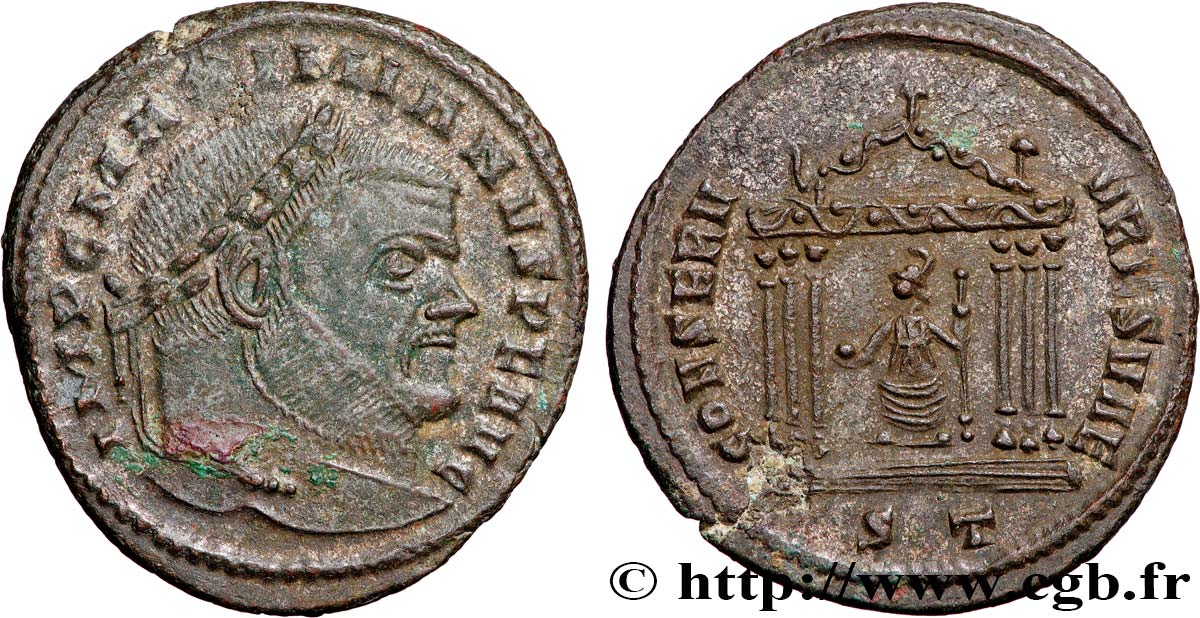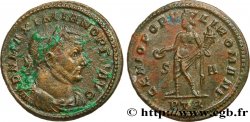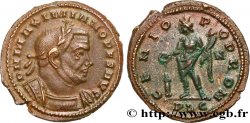brm_899861 - MAXIMIANUS HERCULIUS Follis ou nummus
100.00 €(Approx. 104.00$ | 84.00£)
Quantity
Add to your cart

Type : Follis ou nummus
Date: été
Date: 307-308
Mint name / Town : Ticinum
Metal : billon
Millesimal fineness : 50 ‰
Diameter : 26,5 mm
Orientation dies : 6 h.
Weight : 7,10 g.
Rarity : R1
Officine: 2e
Coments on the condition:
Exemplaire bien centré sur un flan large et ovale. Patine gris foncé, avec des restes d’argenture
Predigree :
Exemplaire provenant de la collection M. R. de Dijon. Monnaie acquise chez Peyrecave en avril 1975. Avec son étiquette
Obverse
Obverse legend : IMP C MAXIMIANVS P F AVG.
Obverse description : Tête laurée de Maximien Hercule à droite (O*).
Obverse translation : "Imperator Cæsar Maximianus Pius Felix Augustus", (L’empereur césar Maximien pieux et heureux auguste).
Reverse
Reverse legend : CONSERV - VRB SVAE/ -|-// ST.
Reverse description : Temple hexastyle de Rome posé sur trois marches avec un fronton triangulaire décoré et festonné ; au centre, une statue de Rome debout à gauche, tenant un globe de la main droite et un sceptre long de la main gauche ; derrière elle, un bouclier.
Reverse translation : "Conservatores Urbis Suæ", (Les Protecteurs de leur ville).
Commentary
Rubans de type 2.








 Report a mistake
Report a mistake Print the page
Print the page Share my selection
Share my selection Ask a question
Ask a question Consign / sell
Consign / sell
 Full data
Full data









